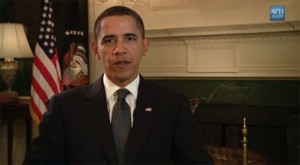 The President extends holiday wishes for Diwali, or Festival of Lights.
The President extends holiday wishes for Diwali, or Festival of Lights.
Diwali, or Dipawali, is India’s biggest and most important holiday of the year. The festival gets its name from the row (avali) of clay lamps (or deepa) that Indians light outside their homes to symbolize the inner light that protects us from spiritual darkness. This festival is as important to Hindus as the Christmas holiday is to Christians.
Over the centuries, Diwali has become a national festival that is enjoyed by most Indians regardless of faith: Hindus, Jains, Buddhists, and Sikhs.
In Britain, as in India, the festival is a time for:
- spring-cleaning the home,
- wearing new clothes
- exchanging gifts (often sweets and dried fruits) and preparing festive meals
- decorating buildings with fancy lights.
- huge firework displays often celebrate Divali.
In India Hindus will leave the windows and doors of their houses open so that Lakshmi can come in. Rangoli are drawn on the floors – rangoli are patterns and the most popular subject is the lotus flower.
The meaning of Diwali
The festival celebrates the victory of good over evil, light over darkness and knowledge over ignorance, although the actual legends that go with the festival are different in different parts of India:
- In northern India and elsewhere, Diwali celebrates Rama’s return from fourteen years of exile to Ayodhya after the defeat of Ravana and his subsequent coronation as king;
- In Gujarat, the festival honours Lakshmi, the goddess of wealth;
- In Nepal Diwali commemorates the victory of Lord Krishna over the demon king Narakaasura;
- In Bengal, it is associated with the goddess Kali.

You must be logged in to post a comment Login